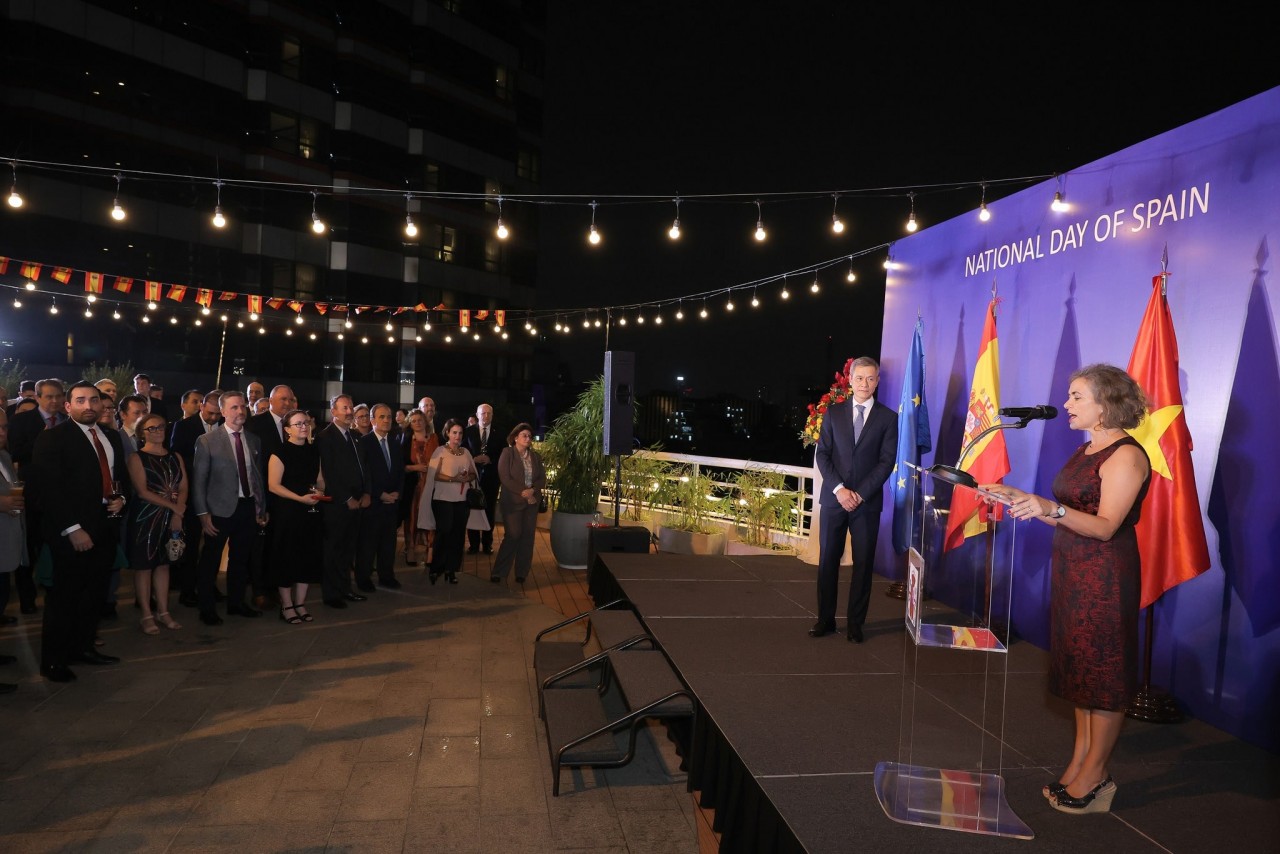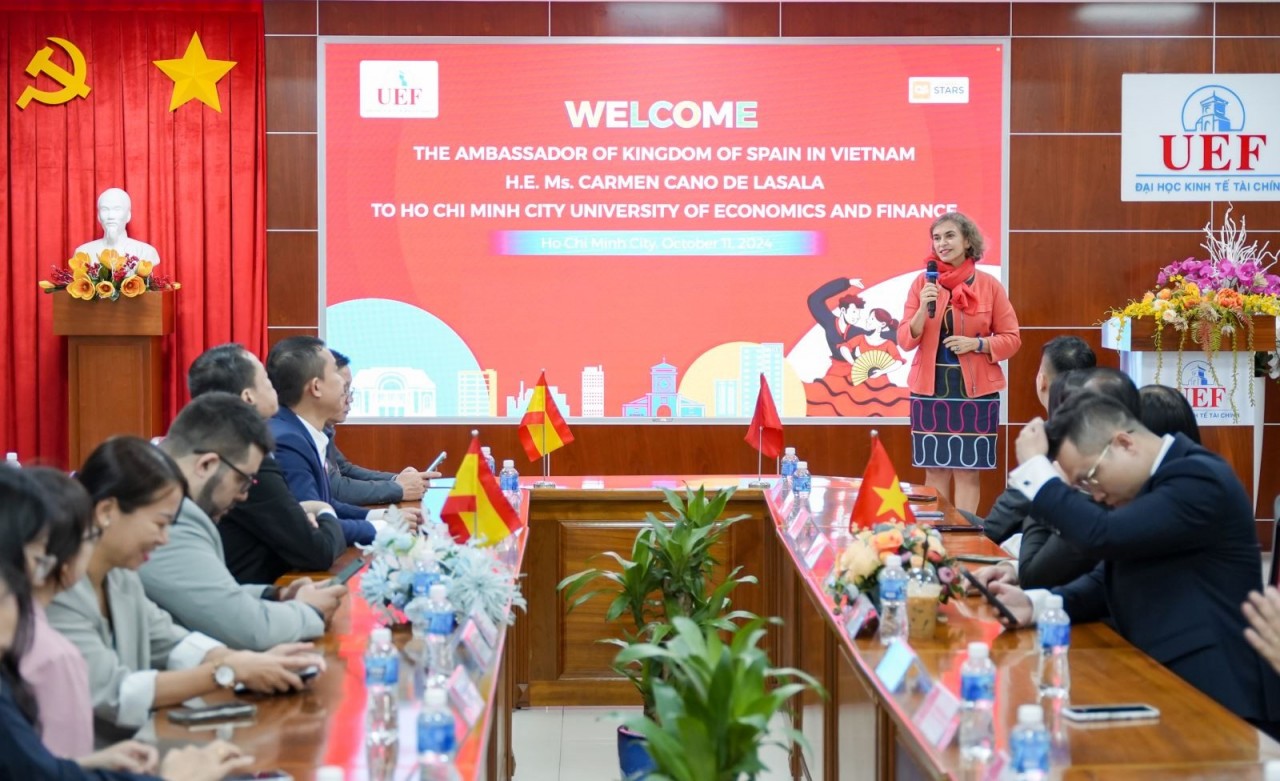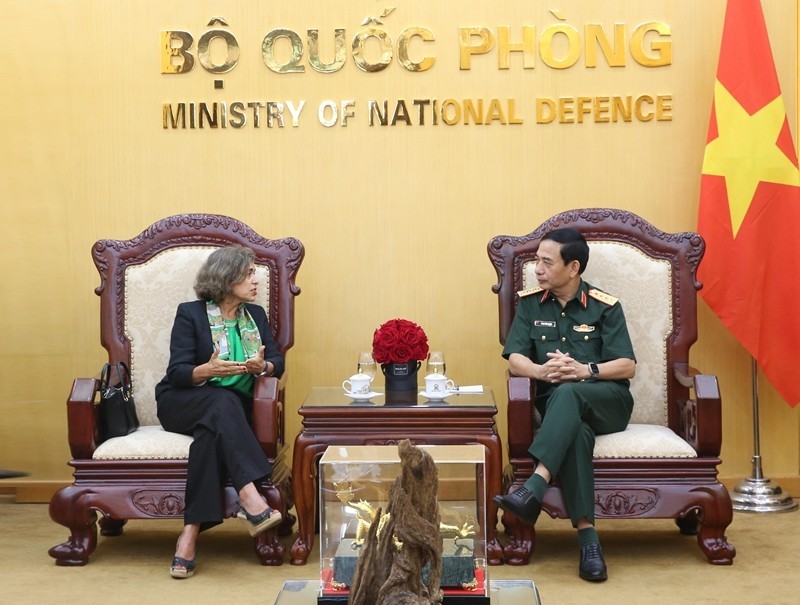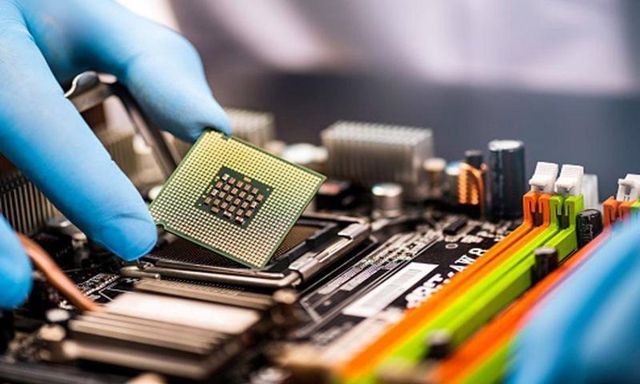Spanish PM's Visit to Vietnam Deepens Bilateral Ties After Nearly Five Decades
| Spanish Ambassador Talks with Students at Ho Chi Minh City University of Economics and Finance | |
| Exploring Spanish Language at European Day of Languages 2024 in Hanoi |
At the invitation of Vietnamese Prime Minister Pham Minh Chinh, Spanish Prime Minister Pedro Sanchez’s official visit to Vietnam from April 8 to 10, is expected to create great momentum for the two countries to elevate their relations to a new, more practical, and effective level.
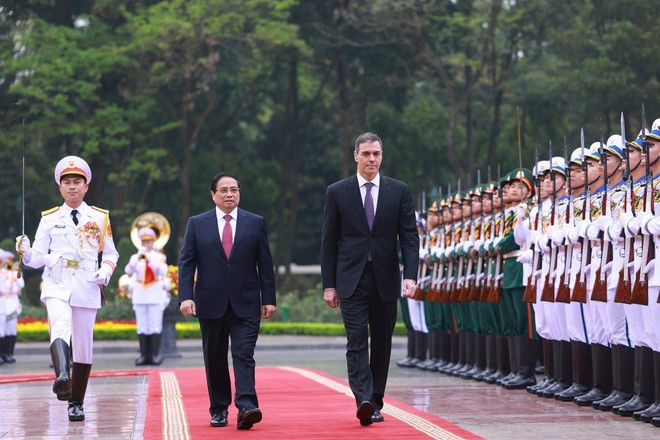 |
| Vietnamese Prime Minister Pham Minh Chinh (L) and Spanish Prime Minister Pedro Sanchez review the guard of honor during the welcoming ceremony for the Spanish PM in Hanoi on April 9. (Photo: VNA) |
This marks the first official visit by a Spanish Prime Minister to Vietnam since the establishment of diplomatic relations in 1977. It is also the first official visit by a high-ranking leader of the Spanish state to Vietnam in 19 years, following the visit of King Juan Carlos and Queen Sofia in 2006.
This demonstrates Spain's appreciation and wish to enhance its close cooperation with Vietnam while affirming Vietnam's growing position and role in the region and the world.
The visit is anticipated to pave the way for a more dynamic and robust economic and trade partnership between the two countries in the coming years.
The strategic partnership grows stronger
The relationship between Vietnam and Spain can be traced back five centuries, originating from trade relations when the first Spanish merchants arrived in Hoi An port to establish a prosperous trading foundation in the region.
The two countries officially established diplomatic ties on May 23, 1977. Over the past 48 years, the friendship and cooperation between the two countries have seen continuous development, expanding bilateral cooperation across various fields.
The relationship has become more robust and comprehensive since the two countries established the "strategic partnership towards the future" during the state visit of President Nguyen Minh Triet to Spain in December 2009.
Notably, Spain was the first EU country to become a strategic partner of Vietnam.
Over the years, the two countries have built a strong bond characterized by deep cooperation, mutual trust, and understanding, facilitated by regular mutual visits and collaboration at all levels.
| From the Vietnamese side, notable visits to Spain include: Prime Minister Phan Van Khai’s official visit (October 2001); President Nguyen Minh Triet’s state visit (December 2009); Deputy Foreign Minister Bui Thanh Son’s participation in the 35th anniversary of diplomatic relations and an investment promotion forum in Madrid (June 2012), and attendance at political consultations (September 2015); Deputy Chairwoman of the National Assembly Nguyen Thi Kim Ngan’s official visit (September 2013); Deputy Prime Minister Tran Luu Quang’s official visit (March 2023); Vice Chairman of the National Assembly Tran Thanh Man’s working visit (March 2023); Prime Minister Pham Minh Chinh’s meeting with Spanish Prime Minister Pedro Sánchez on the sidelines of the G20 Summit in Rio de Janeiro (November 19, 2024). From the Spanish side, key visits to Vietnam include: Minister of Foreign Affairs Carlos Westendorp’s official visit (February 1996); Second Deputy Prime Minister and Minister of Economy Rodrigo Rato’s attendance at the ASEM 3 Economic Ministers’ Meeting in Hanoi (September 2001); Queen Sofia’s official visit (February 2002); First Deputy Prime Minister Maria Teresa Fernández de la Vega’s participation in the ASEM 5 Summit in Hanoi (October 2004); State visit by King Juan Carlos I and Queen Sofia (February 2006); Secretary of State for Foreign Affairs Juan Antonio Yáñez-Barnuevo’s attendance at the second round of Deputy Foreign Minister-level Political Consultations (November 2011); Secretary of State for Foreign Affairs Ignacio Ybáñez Rubio’s visit for the fourth round of consultations (January 2017); Secretary of State for Foreign and Global Affairs Diego Martínez Belío’s visit for the fifth round of consultations (April 2024). |
 |
| Prime Minister Pham Minh Chinh met with Spanish Prime Minister Pedro Sánchez Pérez-Castejón in a summit celebrating the 45th anniversary of the relations between the Association of Southeast Asian Nations (ASEAN) and the European Union (EU), held in Brussels on December 14, 2022. (Photo: VNA) |
Most recently, during the G20 Summit in Rio de Janeiro in November 2024, Prime Minister Pham Minh Chinh met with Spanish Prime Minister Pedro Sánchez.
At the meeting, Prime Minister Pham Minh Chinh emphasized Vietnam’s commitment to deepening its Strategic Partnership with Spain and thanked the Spanish government for supporting Vietnam in recovering from the aftermath of Typhoon Yagi.
The Vietnamese Prime Minister proposed increased exchanges of delegations at all levels, the early signing of a new joint action program between the two governments, and strengthened cooperation in transportation infrastructure, renewable energy, science and technology, and agriculture.
For his part, Prime Minister Pedro Sánchez agreed with these proposals and suggested both sides cooperate in areas such as metro systems, urban railways, and urban planning. He also proposed initiatives to celebrate the 50th anniversary of diplomatic relations in 2027, including cultural exchanges, promoting people-to-people, cultural, sports, and tourism exchanges, and mutual support at multilateral forums.
The two countries currently maintain mechanisms such as Deputy Foreign Minister-level Political Consultations and a Joint Committee on economic, trade, and investment cooperation led by the Ministry of Industry and Trade. Both countries actively cooperate and support each other in multilateral mechanisms, especially within the United Nations and ASEAN-EU frameworks.
Promising economic and trade cooperation
Since the establishment of the Strategic Partnership, bilateral economic and trade relations have developed strongly. Spain is Vietnam's fifth-largest trading partner in the EU, while Vietnam is Spain's largest trading partner in ASEAN.
Between 2019 and 2024, bilateral trade grew at an average annual rate of 8.7%. In 2024, trade turnover reached US $4.72 billion, marking a 20% increase compared to 2023. The trade structure between the two countries is complementary rather than competitive.
Vietnam mainly exports textiles, steel, footwear, phones and components, coffee, machinery, and electronic products to Spain, while importing pharmaceuticals, machinery and spare parts, chemical products, raw plastics, and animal feed from Spain.
The two sides have effectively implemented the EU-Vietnam Free Trade Agreement (EVFTA), in effect since August 2020. Spain also ratified the EU-Vietnam Investment Protection Agreement (EVIPA) in January 2022.
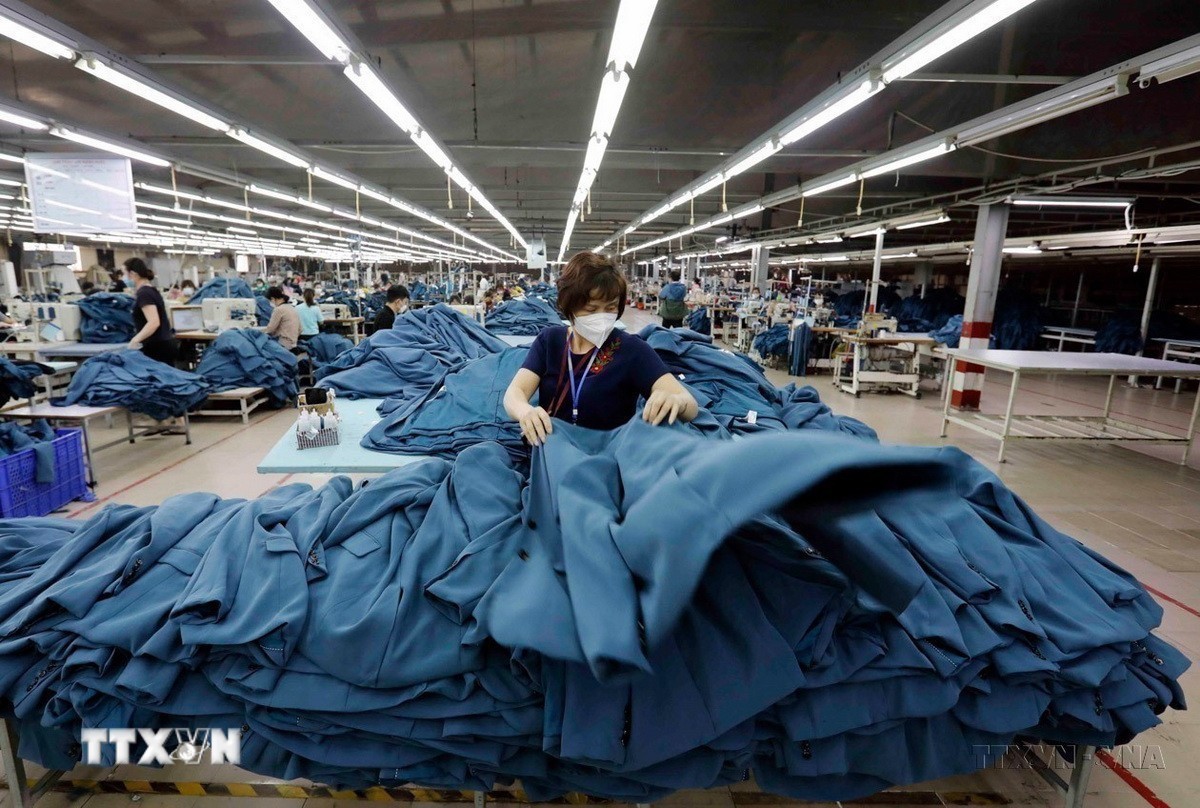 |
As of January 2025, Spain had 97 investment projects in Vietnam with a total capital of US $143.9 million, primarily in processing, manufacturing industries (56.1%), and hospitality services (32.8%).
Vietnam currently has three investment projects in Spain with a total capital of US $64.2 million, focusing on the fields of scientific and technological research, processing, and manufacturing industries.
In terms of development cooperation, Vietnam has consistently been one of the priority countries in Spain’s development cooperation policy.
Spain has committed over US $1 billion in ODA loans and non-refundable aid to Vietnam through six cooperation programs targeting poverty reduction, gender equality, healthcare, and access to clean water, contributing significantly to Vietnam’s socio-economic development.
Spain also possesses strengths in various key economic sectors that Vietnam is eager to develop. The European country boasts advanced transportation infrastructure, including the second-largest high-speed rail network in the world, and offers competitive average construction costs for high-speed trains.
Meanwhile, Vietnam has abundant solar and wind energy resources, while Spain is among the leading countries in the region for renewable energy deployment.
Spain is accelerating its transition to coal-free electricity, with plans to phase out coal power by 2025, five years ahead of schedule, and is on track to generate more than half of its energy from renewable sources. The EU’s largest hydrogen plant is also located in Puertollano, Ciudad Real, Spain.
Additionally, Spain is the second-largest producer of fruits and vegetables in the EU and the sixth-largest in the world, with a globally leading food processing technology sector.
Spain’s agri-food industry is the country’s leading industrial sector, developed in a large-scale, modern, and industrialized direction. These are promising areas for further cooperation between the two countries in the near future.
In the field of education and training, the two countries have focused on language instruction, with support from the Cervantes Institute and the Spanish Agency for International Development Cooperation (AECID), which annually sends two lecturers to teach Spanish in Vietnam. Between 1998 and 2018, Spain granted around 285 scholarships to Vietnamese students.
Cultural, sports, and tourism cooperation between the two countries has received strong attention. The two sides signed a Tourism Cooperation Agreement (April 2002) and a Cultural, Educational, and Scientific Cooperation Agreement (June 2005). They have also coordinated to organize numerous exchange visits and cultural, artistic, film, and exhibition events, and tourism promotion activities in both countries.
 |
| Art performance at the opening ceremony of “Vietnam Day in Spain 2017”. |
On the occasion of the 1000th anniversary of Thang Long-Hanoi (2010), Spain sponsored the renovation of a hotel owned by the Hanoi People's Committee in Spanish architectural style and participated in the Ceramic Road project.
Vietnam currently offers unilateral visa exemption for Spanish citizens for up to 45 days. In 2024, Vietnam welcomed 91,400 Spanish tourist arrivals.
A particularly outstanding highlight in the Vietnam–Spain Strategic Partnership in recent years has been increasingly vibrant cultural and people-to-people exchanges, which lay the groundwork for enhanced mutual understanding and trust between the two countries.
As Queen Sofia once told President Nguyen Minh Triet in 2009: “My family loves Vietnam with all our hearts.”
Vietnamese culture, cuisine, and art are warmly embraced by the Spanish public.
There are currently around 1,000 Vietnamese children adopted by Spanish families, who have integrated well into the local communities while still preserving their cultural heritage.
The Vietnam-Spain Friendship Association was established in May 2004 and has carried out many cooperative activities with Spanish partners, especially in culture and education.
In recognition of his contributions to strengthening ties between the peoples of the two countries, Spain’s King awarded the Grand Cross of the Order of Civil Merit to Nguyen Duc Loi, President of the Vietnam-Spain Friendship Association, in 2020.
The Vietnamese community in Spain currently numbers around 5,000 people, primarily small business owners, who have integrated well into local society. A Vietnamese community liaison committee was established in Spain in January 2023.
Deepening the Vietnam-Spain Strategic Partnership
According to Vietnamese Ambassador to Spain Doan Thanh Song, Vietnam and Spain are now at a stage where they share more mutual interests than ever before, creating favorable conditions to further deepen their strategic partnership.
Both countries are actively seeking to expand and develop new markets and partnerships. Spain holds a strategic position and influence not only in Europe, particularly in Southern Europe, but also in the Spanish-speaking world, in Latin America and North Africa, serving as a key connector between these regions. Strengthening ties with Spain will help Vietnam expand cooperation and enhance its role and reputation in these areas.
The upcoming official visit to Vietnam by Spanish Prime Minister Pedro Sánchez carries special significance, demonstrating Spain’s strong determination to boost cooperation with Vietnam.
An increasing number of Vietnamese businesses are seeking entry into the Spanish market. However, this figure remains modest compared to the true potential for cooperation between the two countries.
Ambassador Doan Thanh Song noted that this may be one of the reasons why Prime Minister Pedro Sánchez is bringing along a delegation of Spain’s leading corporations during his visit to Vietnam.
This visit comes at a meaningful time: after the two countries celebrated 15 years of Strategic Partnership (2009-2024) and in the lead-up to the 50th anniversary of diplomatic relations (May 23, 1977 - May 23, 2027).
It is expected to strengthen diplomatic, economic, and trade relations, serving as a major momentum for the two countries to elevate their relationship to a new, more practical, and effective level.
According to Ambassador Doan Thanh Song, the two sides are expected to discuss measures to enhance political trust, deepen the existing relationship, and open new opportunities in potential areas such as politics, diplomacy, economy, trade, investment, science and technology, infrastructure, urban transport, sustainable development, and renewable energy. Many bilateral cooperation documents are also expected to be signed during the visit.
Ahead of the visit, Prime Minister Pedro Sánchez emphasized that “Vietnam has become a magnet for foreign investment,” and affirmed that thanks to the EU-Vietnam Free Trade Agreement, Spanish companies, leaders in fields such as infrastructure and renewable energy, will be able to pursue major business opportunities in Vietnam.
This statement, along with the Prime Minister’s visit, will help draw attention and priority from the Spanish public and business community toward Vietnam, opening up many new avenues for cooperation.
 | Spanish Blogger Visits his Life-Saving Vietnamese Doctor Juan Por El Mundo, a Spanish blogger who travels around the world, has just come back to Vietnam to visit the doctor that had put ... |
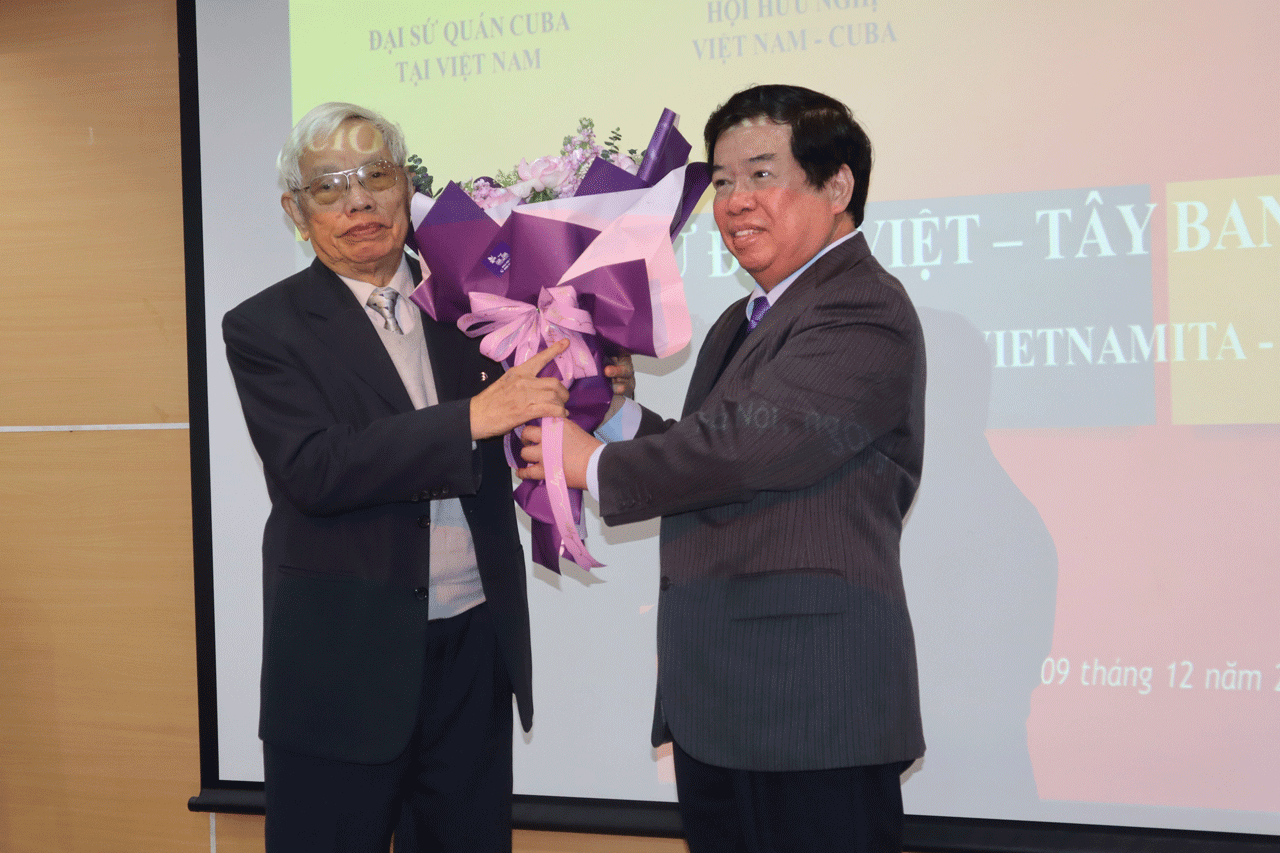 | First Vietnamese-Spanish Dictionary Introduced in Vietnam The Vietnam-Cuba Friendship Association, the Cuban Embassy in Vietnam and the Vietnam National University, Hanoi organized an event on Friday to introduce the first-ever Vietnamese-Spanish ... |
Recommended
 National
National
Vietnam News Today (May 23): Vietnam–France Comprehensive Strategic Partnership Opens New Horizons for Cooperation
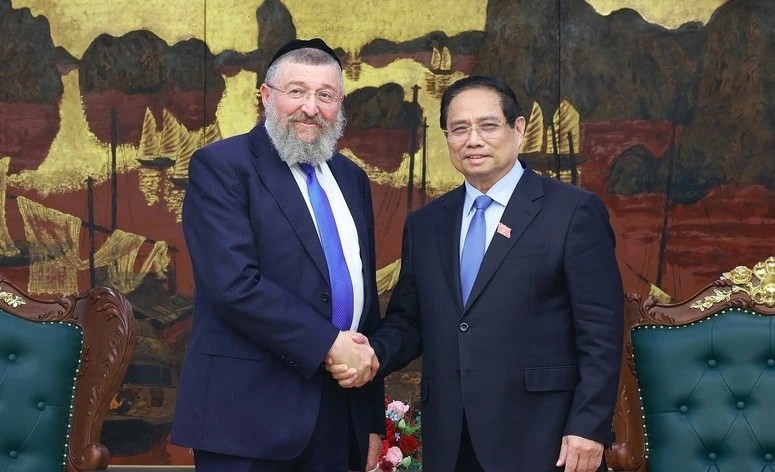 National
National
Vietnam News Today (May 22): Stronger Vietnam-Israel Cooperation Expected in Science, Innovation and Labor
 National
National
Vietnam News Today (May 21): Vietnam Attends UN Commission on Crime Prevention and Criminal Justice's 34th Session
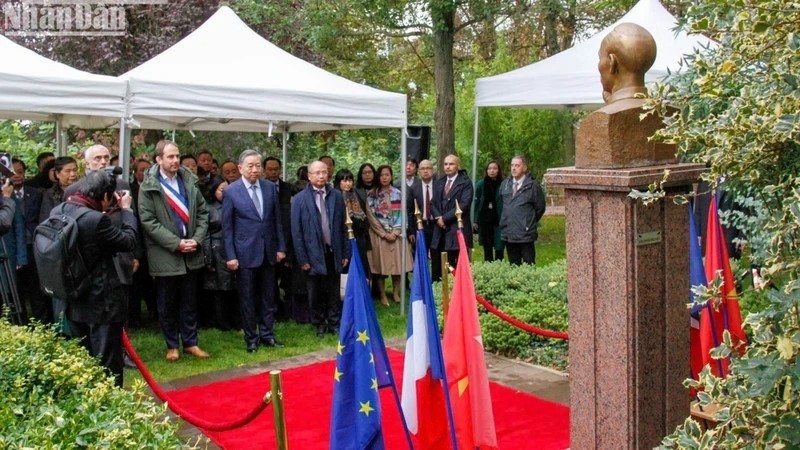 National
National
Deep Affection of International Friends
Popular article
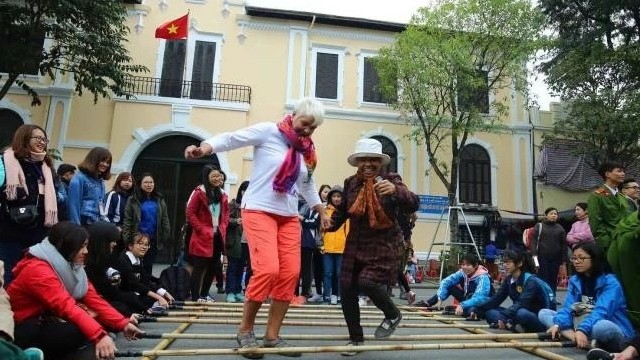 National
National
Vietnam News Today (May 20): Hanoi Named Top Cultural, Artistic Destination in Asia
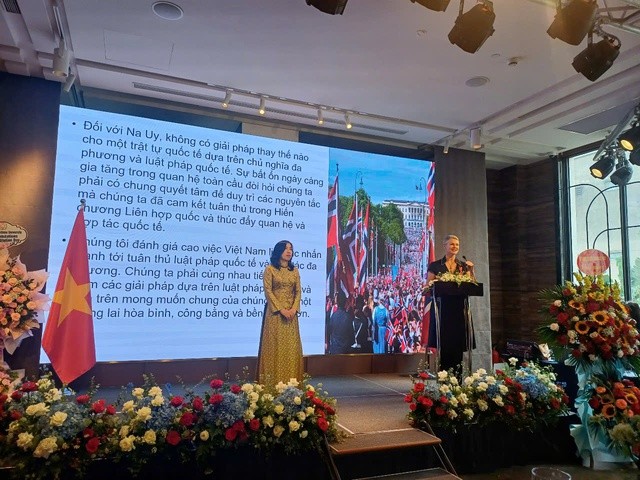 National
National
Vietnam News Today (May 19): Norway Hails Vietnam’s Continued Emphasis on Upholding International Law
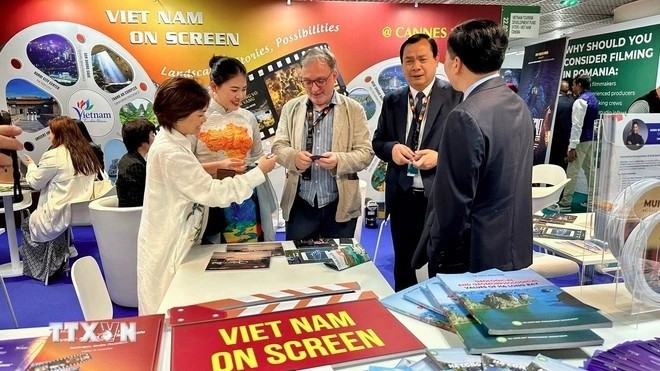 National
National
Vietnam News Today (May 18): Cannes 2025: Vietnam Rising as New Destination for International Filmmakers
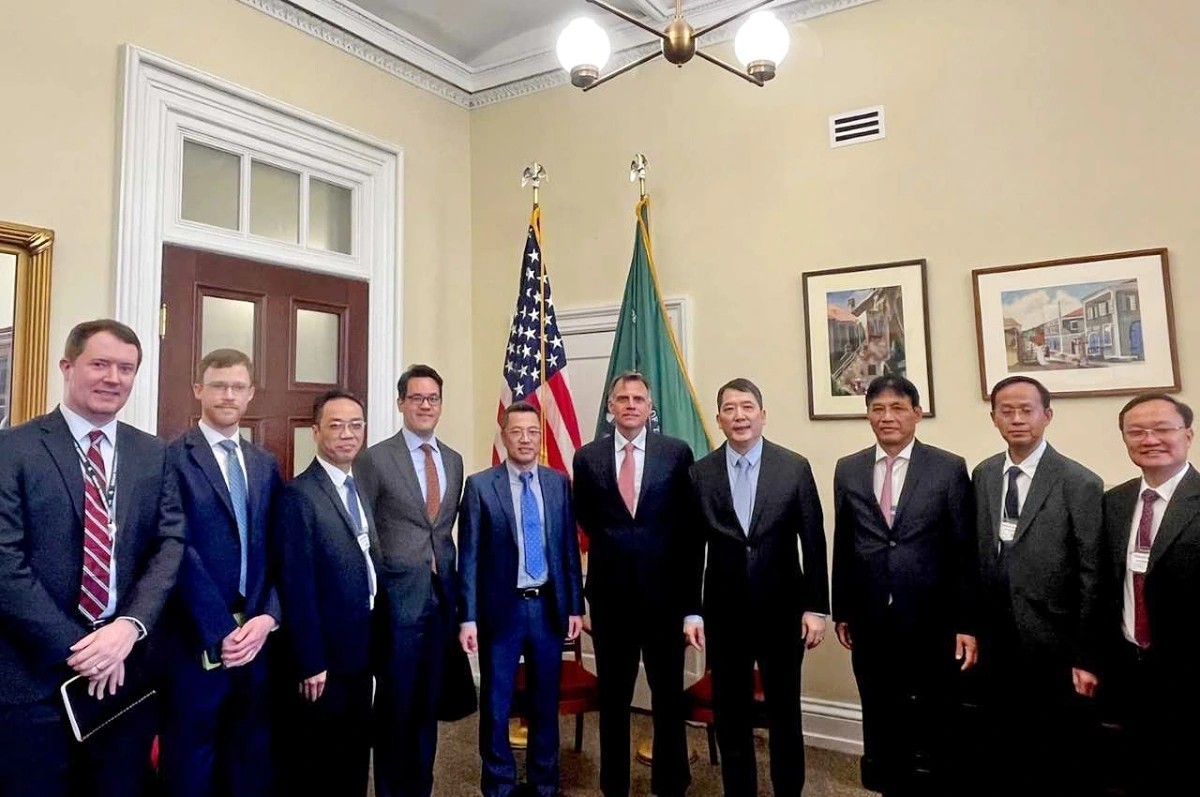 National
National




